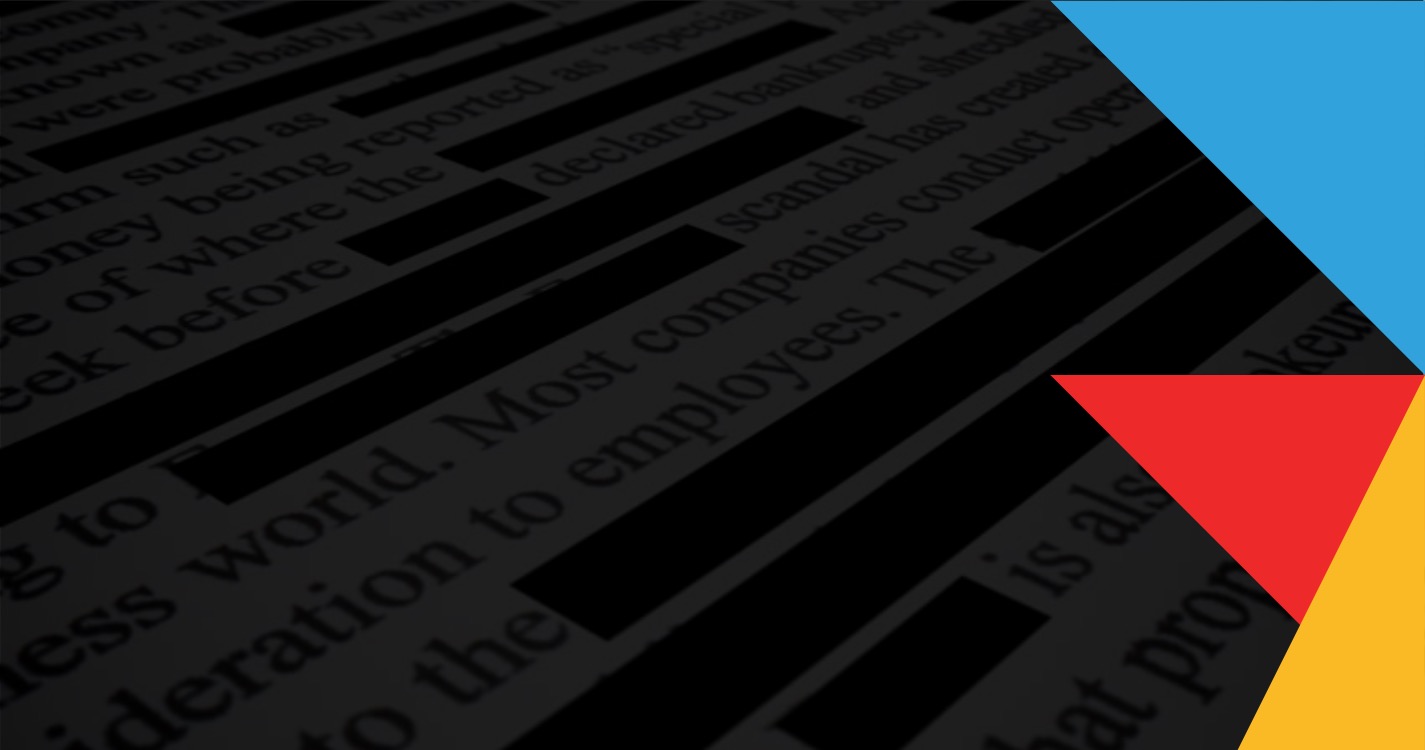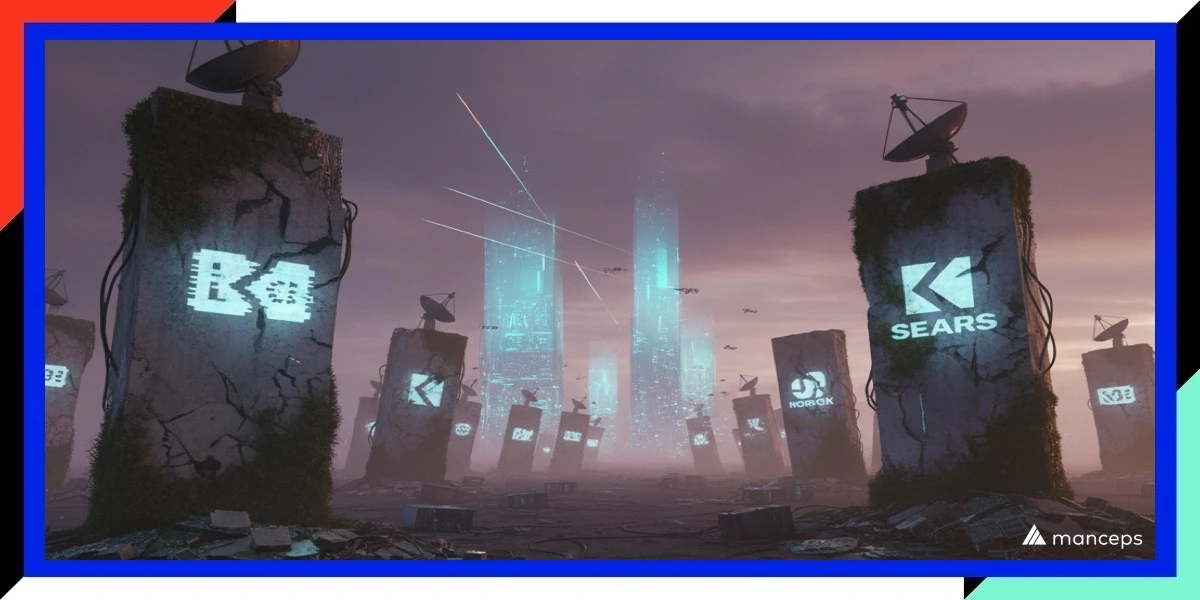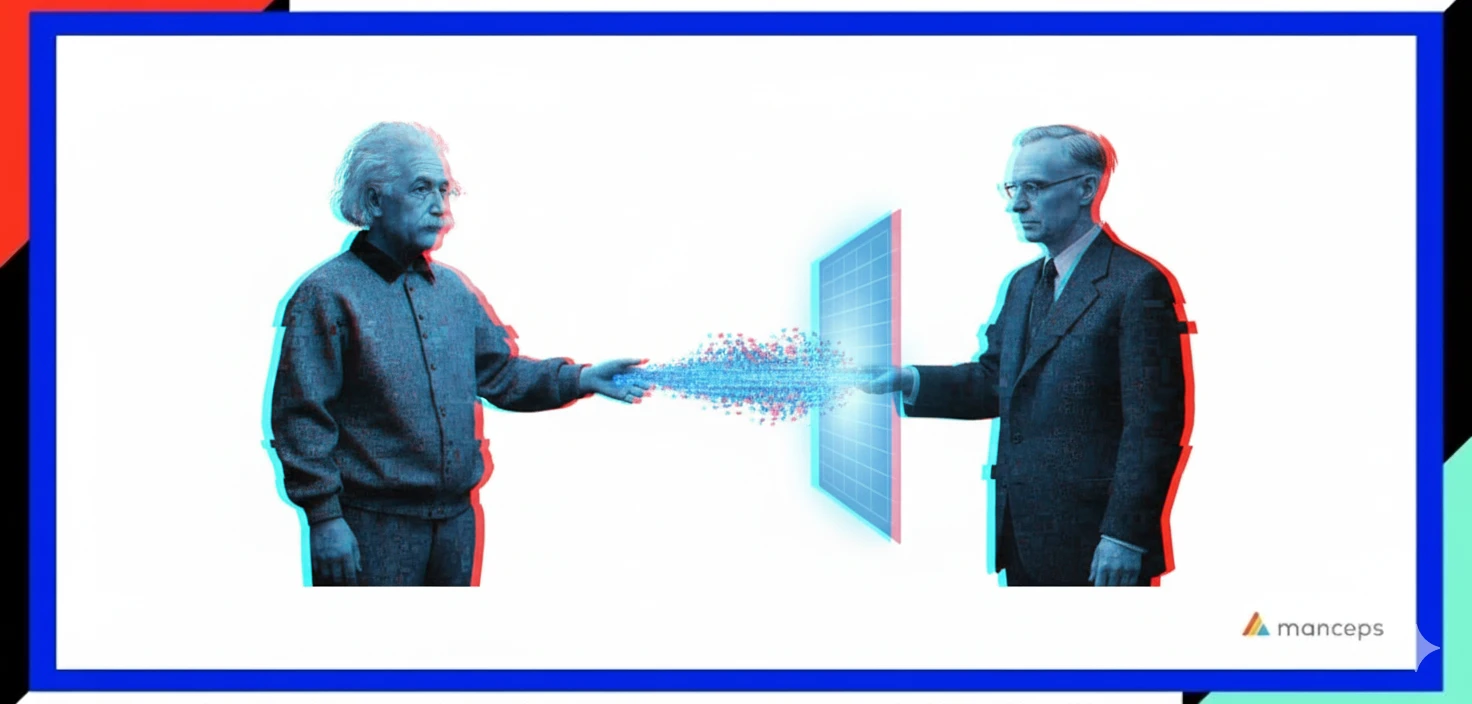I’m writing this on Halloween night, 2025 because I am scared, workers are scared, and so should companies 🎃
The landscape of corporate power is a graveyard of incumbents. This is not opinion; it is statistical fact. A report by WatchMyCompetitor found that 52% of the companies on the Fortune 500 list from 2003 no longer existed in the same form just two decades later; bankrupt, merged, acquired, or simply gone.
This brutal churn is the backdrop for the single greatest technological shift of our lifetime: the rise of generative artificial intelligence. And just as before, the executive class is responding with a predictable mix of fear and zealous, short-sighted opportunism.
The Siren Song of Acceleration
In the cut-throat, services-based economy, the pressure to win the career war is immense. Zealous executives, hounded by demands for quarterly growth and "enhanced productivity", see AI as the ultimate weapon. They rush to deploy it, eager to claim the promised benefits: radical acceleration, massive cost avoidance, and the brutal, efficient trimming of headcount.
AI vendors, sensing this desperation, are offering their solutions for pennies on the dollar, sometimes for nothing at all. "Just plug into our API", they whisper. "Feed us your data. Let us automate your workflows". And in boardrooms across the world, executives are taking the bait. They are handing over the keys to the kingdom.
The Faustian Bargain
Unwittingly, or perhaps just carelessly, these companies are feeding their most valuable asset, their core domain knowledge, proprietary data, and decades of human-honed expertise, directly into the maw of third-party AI models. Every brief, every report, every line of code, every strategic analysis and every thesis, becomes training data.
As these models learn, they improve. They evolve from generalists into specialists, becoming better at consulting than the consultants, better at analysis than the analysts, better at creating content than the creators. The very companies that fed the beast are now finding themselves in its crosshairs.
This is not a new story. We watched this exact predatory playbook in the last decade. Large cloud providers invited independent software vendors (ISVs) onto their platforms, facilitating and funding their migration. The ISVs brought their customers and paid for cloud spend, and in return, the cloud giants learned from their data and operational patterns. Once the market was proven, the giants launched their own competing, native services at a fraction of the cost, rendering the original ISVs obsolete. Ask the founders of mLab what happened when AWS launched its own managed MongoDB service.
Today, the cycle is repeating at terrifying speed. We have all seen how major OpenAI product releases have made entire ecosystems of AI startups obsolete overnight. Features that were once the core product of venture-backed companies, AI agents, workflow automation, specialized GPTs, are suddenly integrated directly into the core platform, offered for free and with massive, built-in distribution.
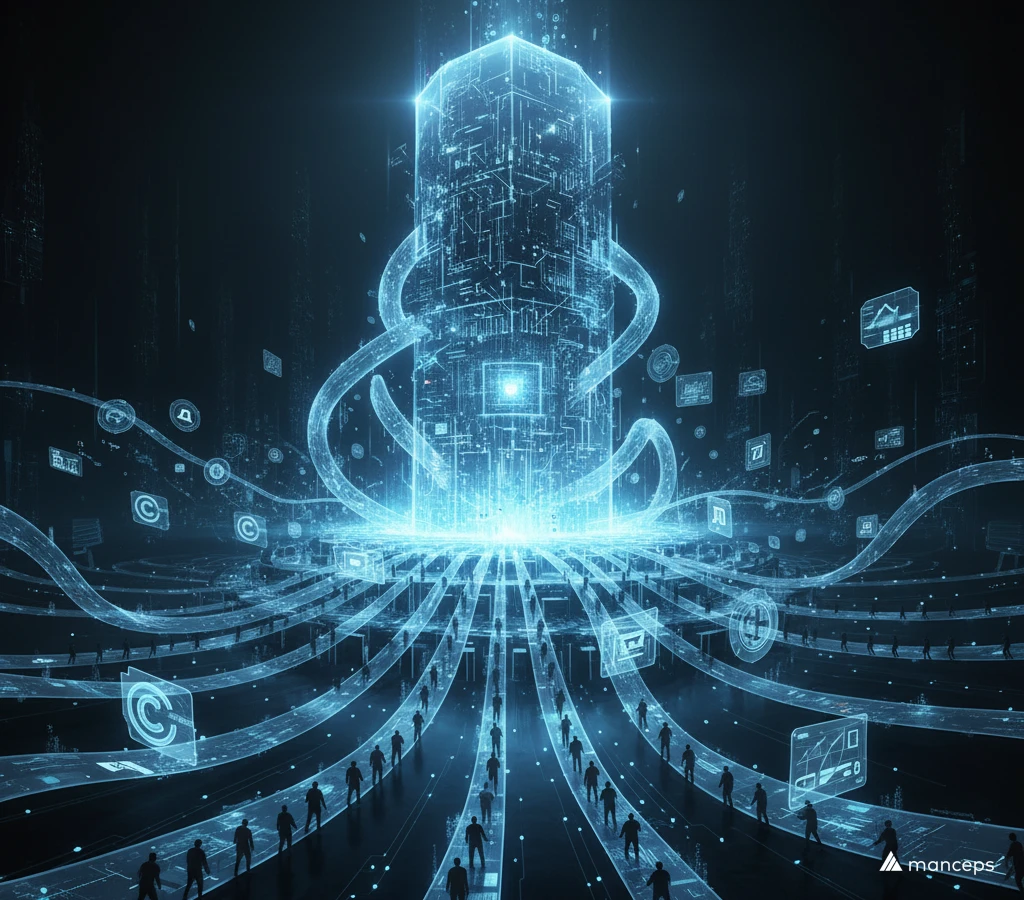
This is the "Mediocrity Trap". As companies pour their unique, hard-won expertise into generalist, public-facing models, they are participating in their own commoditization. Their distinct value is averaged out, absorbed, and repackaged. Have you paid attention to how much ChatGPT and its rivals have improved in the last 18 months? That improvement was not magic. It was fueled by our queries, our data, and the intellectual property of businesses foolish enough to give it away.
Once these AI vendors achieve sufficient expertise, and the inevitable deregulation clears the path, they will begin launching fully automated, competing services. They will target the large consultancies, the medium-sized data firms, the small creative studios, and even government services. And they will win, because the companies they are displacing trained them to do so.
This is the Mediocrity Trap. As companies pour their unique, hard-won expertise into generalist, public-facing models, they are participating in their own commoditization. Their distinct value is averaged out, absorbed, and repackaged.
The Path to Sovereignty
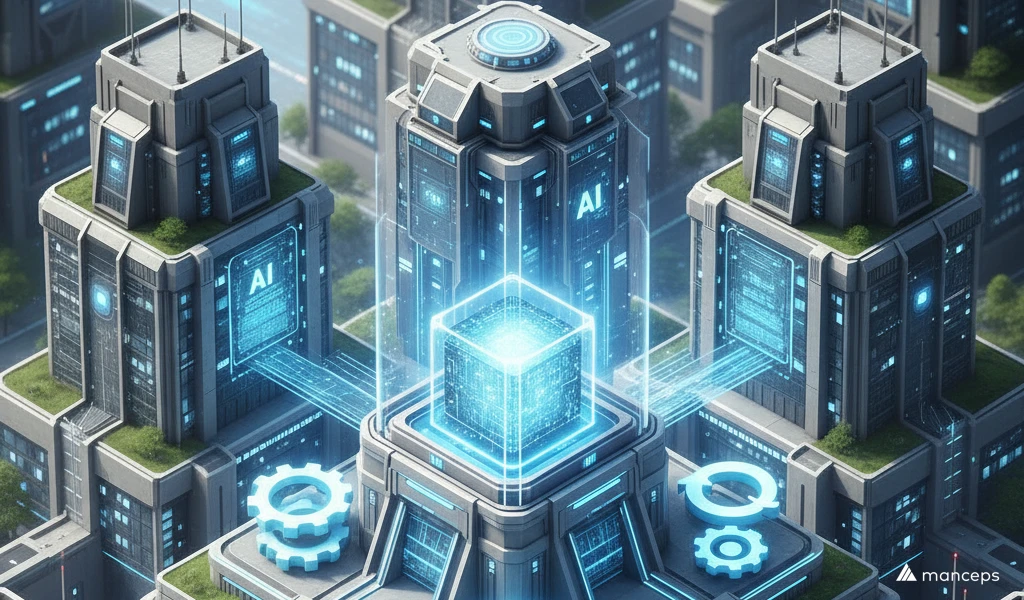
How do you survive this? How do you avoid the trap?
You stop feeding the beast that intends to eat you. The only way out is to protect your intellectual property by building your own private AI capabilities. The future does not belong to the companies that consume public AI; it belongs to the companies that own their AI.
This is the antidote. The path to survival is to leverage the power of state-of-the-art open-source models and deploy them within your own walls, on your own data. This allows you to build specialized, expert AI that captures your unique value rather than leaking it to a competitor. This is how you create a durable, defensible moat in the AI age.
Firms like Manceps exist to facilitate this transition, enabling companies large and small to deploy their own specialized AI on top of open-source foundations. This is not just a technological strategy; it is a declaration of corporate sovereignty.
The choice is stark. You can be the raw material for someone else's model, or you can build your own. You can accelerate your journey into mediocrity and obsolescence, or you can forge a future where your expertise remains your own. Do not lose your lunch, or your entire company, by choice.
Happy and Safe Halloween everyone.
Al Kari
CEO, Manceps


